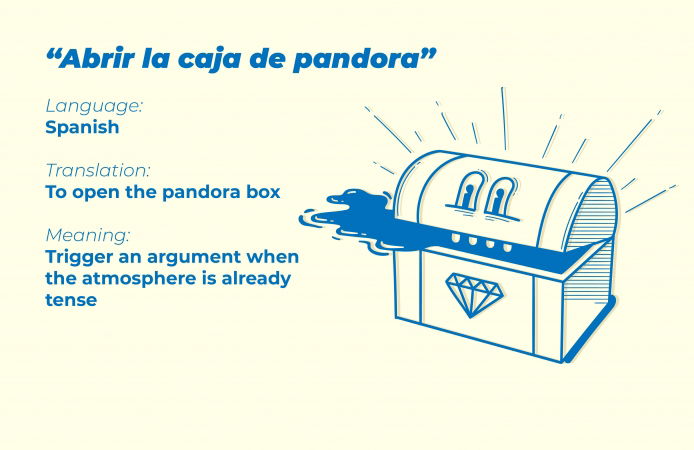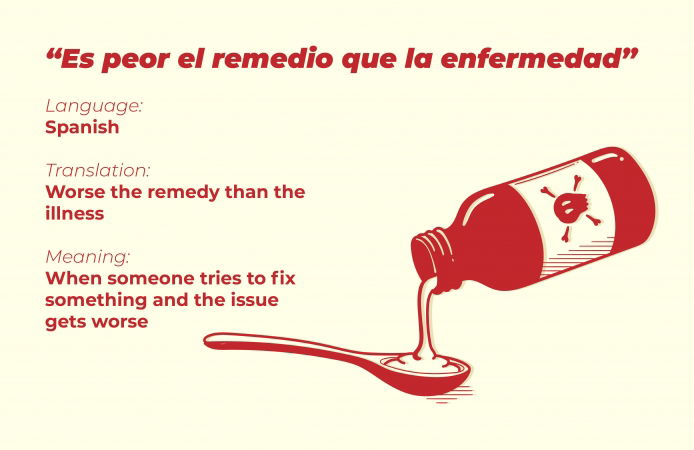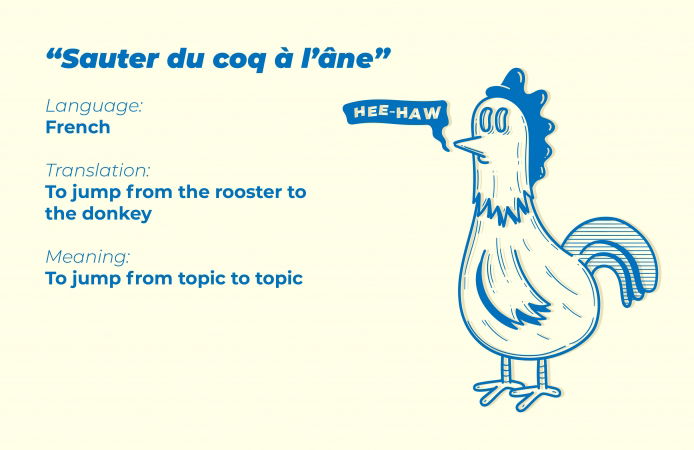share on
While we wouldn’t think twice about using expressions like “hitting the nail on the head” in a business setting (even if some of our colleagues really hate them), they might sound a bit odd to a co-worker from a different country when heard for the first time.
Expanding a business internationally means communicating daily with people from across the globe. But how often can you say a phrase that translates into "This is sausage to me" and get away without confounding others at your workplace?
Well, that's the hilarity in work conversations that we all could use. While we wouldn’t think twice about using expressions like “hitting the nail on the head” in a business setting (even if some of our colleagues really hate them), they might sound a bit odd to a co-worker from a different country when heard for the first time.
Equally, many international idioms may seem a little (or very!) strange to us when translated into English.
To try and ease one of the biggest challenges posed by international business communications, the team at TollFreeForwarding.com have visualised what some of the most wonderful and bizarre international idioms mean when translated into English. Take a look below:
Das ist mir Wurst’ is a German expression that translates to ‘this is sausage to me’. If a German colleague says this, they are telling you that they don’t care or have no opinion on the matter at hand.

The Italian phrase ‘In bocca al lupo’ has a direct translation of ‘in the mouth of the wolf’. If you hear this at work, it’s not at all as aggressive as it sounds – this phrase is similar to the English ‘break a leg’, wishing you good luck.

‘Abrir la caja de pandora’ is the Spanish equivalent of ‘opening Pandora’s box’. This phrase is based on the myth of Pandora, who opened a jar full of evils that were then released into the world. Simply put, it means starting something that will cause a lot of problems, for example, triggering an argument in an already tense atmosphere.

[POLL] We'd love to know what are some of the craziest things you've heard at work! Be it an idiom ("the ball is in your court"), business jargon ("the synergies are resonating with the organisational alignment to business strategy"), or just anything that cracked you up! Write in to us at aditis@humanresourcesonline.net with your submissions and we'd love to feature them in our next article.
Another phrase you may come across from a Spanish co-worker is ‘Es peor el remedio que la enfermedad’ which has the same meaning as ‘worse the remedy than the illness’. In the workplace, this could be used when someone tries to fix an issue and instead makes it worse.

If a French colleague or client tells you you’re ‘jumping from the rooster to the donkey’ (‘Sauter du coq à l’âne’), you’ll no doubt conjure up a hilarious mental image. However, before you laugh too much, you should know they’re accusing you of jumping from topic to topic and being difficult to follow.

The Swedish have a saying, ‘Slå två fulgor I en smäll’, which meaning ‘hitting two flies in one blow’. Similar to the English ‘two birds with one stone’, in the workplace, this phrase would mean completing two tasks in one go.

While many international idioms bring to mind comical imagery, English idioms can be equally weird to non-native speakers when taken literally. Take ‘keep your eye on the ball’ as an example: while those used to the phrase know it to mean ‘give something your full attention’, those unfamiliar may be imagining something a little more unusual.

Colleagues or clients from Poland? Double-check your behavior if they accuse you of ‘turning someone into a horse’ (‘Zrobić kogoś w konia’) – they’re accusing you of cheating or misleading.

There’s a great idiom in China, ‘九牛一毛 ‘, or ‘9 cows and 1 strand of cow hair’. Similar to our well-known idiom ‘a drop in the bucket’, this phrase indicates something is small or of little value to the bigger picture.

If a Japanese co-worker tells you ‘even monkeys fall out of trees’, rest assured, they’re not calling you a monkey. This idiom (猿も木から落ちる’) is an offering of reassurance that means anyone – even the most skilled people – can make a mistake.

While they bring about some hilarious imagery, these visualisations also offer a quick and easy insight into some of those business communications that may have previously left you scratching your head. Next time you’re interacting with an international colleague or client at work and hear something unusual, chances are you’ve just stumbled across a native idiom. Just learn what they mean, and you’ll soon be communicating like a pro with business associates all across the world.
[POLL] We'd love to know what are some of the craziest things you've heard at work! Be it an idiom ("the ball is in your court"), business jargon ("the synergies are resonating with the organisational alignment to business strategy"), or just anything that cracked you up! Write in to us at aditis@humanresourcesonline.net with your submissions and we'd love to feature them in our next article.
All images / TollFreeForwarding.com
Human Resources Online is on Telegram! Follow us @humanresourcesonline or click here for all the latest weekly HR and manpower news from around the region.
share on
Follow us on Telegram and on Instagram @humanresourcesonline for all the latest HR and manpower news from around the region!
Related topics


